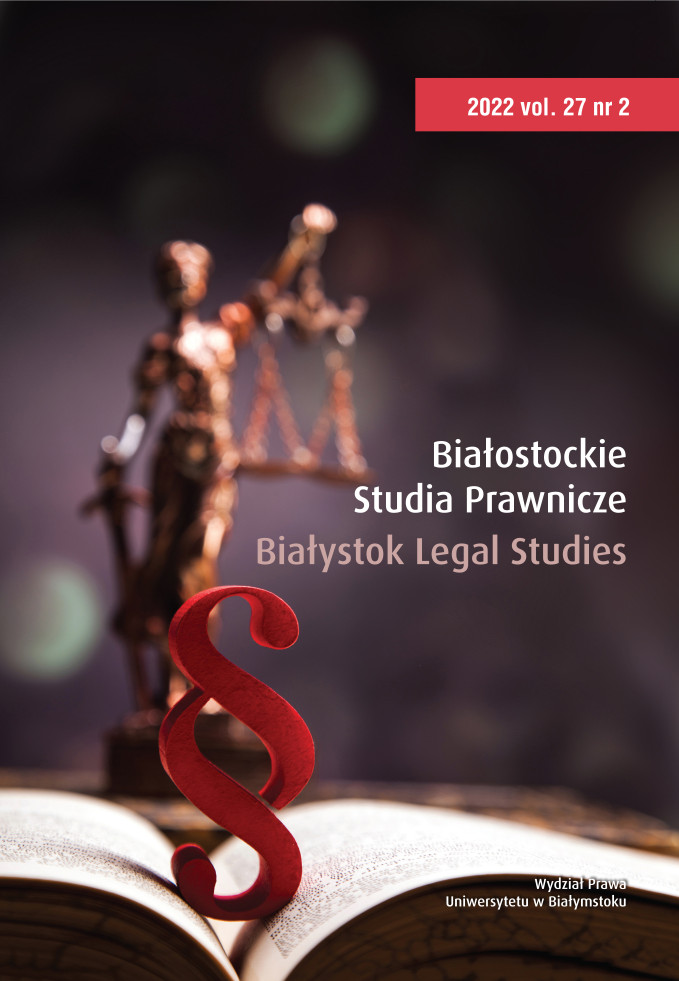Restrictions on the Right to Vote in the Pandemic during the Election of the President of the Republic of Poland in 2020
Słowa kluczowe:
active election rights, elections, election campaign, election objections, postal voting, presidential electionsAbstrakt
In 2020, presidential elections were due to be conducted in Poland. Despite the COVID-19 pandemic, it was decided not to introduce a state of natural disaster and, as a consequence, postpone the elections but to execute them on the grounds of episodicact. On the basis of the first episodic law, from 6 April 2020, the elections did not take place because they were completely unprepared. This law had many flaws. The elections were to be purely postal, so voters had no possibility of choosing which method to use to vote. The law’s entry into force on the eve of the election meant that voters were disoriented until the last minute and did not know how they could vote, whether they would receive election packages, where they would have to deliver return envelopes with a ballot paper and were not sure whether their vote would be counted. The second episodic law, of 2 June 2020, did not contain so many flaws, and voters in the country could decide for themselves which method to use. However, voting was very difficult abroad, and in 20 countries was not carried out at all. There were also only three days to submit election objections. However, above all, the lack of impartiality in the public media, especially public television, which supported the candidate promoted by the ruling majority, limited voters’ right to access truth-based information on public matters, candidates and their political programmes. These circumstances prompt us to consider whether the presidential elections in Poland in 2020 met the constitutional requirement of universality, equality and secrecy, and whether they were reliable and fair. Do they therefore serve to legitimize the office of the president of the Republic of Poland?Bibliografia
Act of 18 April 2002 on the state of natural disaster, ‘Journal of Laws’ 2017, item 1897.
Act of 5 January 2011 – Election Code, ‘Journal of Laws’ 2020, item 1319.
Act of 6 April 2020 on the special rules for holding general elections for the President of the Republic of Poland ordered in 2020, ‘Journal of Laws’ 2020, item 827.
Act of 16 April 2020 on specific support instruments in connection with the spread of SARS-CoV–2 virus, ‘Journal of Laws’ 2020, item 695.
Act of 2 June 2020 on the special rules for the organization of general elections for the President of the Republic of Poland ordered in 2020 with the possibility of postal voting, ‘Journal of Laws’ 2020, item 979.
Bała P., Constitutional Failure. Regulacja stanów nadzwyczajnych i zbliżonych w Konstytucji RP z 2 kwietnia 1997 r. a praktyka ustrojowa zwalczania epidemii COVID-19/SARS-CoV–2, ‘Przegląd Konstytucyjny’ 2020, no. 2, pp. 68–121.
Balicki R., Głosowanie korespondencyjne w polskim porządku prawnym – zmienne dzieje regulacji, (in:) J. Ciapała and A. Pyrzyńska (eds.), Dylematy polskiego prawa wyborczego, Warsaw 2021, pp. 191–207.
Biernat T., Wprowadzenie, (in:) T. Biernat (ed.), Stabilność prawa w kontekście wartości, instytucji i funkcjonowania systemu prawnego, Kraków 2016.
Decision of the Marshal of the Sejm of the Republic of Poland of 5 February 2020 on ordering the election of the President of the Republic of Poland, ‘Journal of Laws’ 2020, item 184.
Decision of the Marshal of the Sejm of the Republic of Poland of 3 June 2020 on ordering the election of the President of the Republic of Poland, ‘Journal of Laws’ 2020, item 988.
Domańska A. and Wrzalik M., Przejawy zasady (nie)uczciwości wyborów na przykładzie wyborów prezydenckich, (in:) J. Ciapała and A. Pyrzyńska (eds.), Dylematy polskiego prawa wyborczego, Warsaw 2021, pp. 105–121.
‘Dziennik Gazeta Prawna’, 13.05.2021.
Garlicki L., Europejskie standardy rzetelności wyborów (Komisja Wenecka i Europejski Trybunał Prawa Człowieka), ‘Przegląd Konstytucyjny’ 2020 no. 4, pp. 142–185.
Garlicki L., Polskie prawo konstytucyjne. Zarys wykładu, Warsaw 2020.
Jackiewicz A., Postal Voting and Voting by Proxy as an Alternative Voting Methods in the Light of the Electoral Code in Poland, ‘Białostockie Studia Prawnicze’ 2016, vol. 20/A, pp. 261–271.10.15290/bsp.2016.20A.en.19
Jirásková V., Wybory w dobie koronawirusa – Republika Czeska, ‘Studia Wyborcze’ 2021, vol. 31, pp. 17–34.
Judgment of the Constitutional Tribunal of 3 November 2006 in case K 31/06.
Judgment of the Provincial Administrative Court in Warsaw of 26 February 2021, IV SA/Wa 1817/20.
Piotrowski R., Opinia o ustawie z dnia 6 kwietnia 2020 r. o szczególnych zasadach przeprowadzania wyborów powszechnych na Prezydenta Rzeczypospolitej Polskiej zarządzonych w 2020 r. (druk senacki nr 99), Opinie i Ekspertyzy, OE-292, https://senat.gov.pl).
Radziewicz P., Kryzys konstytucyjny i paradygmatyczna zmiana konstytucji, ‘Państwo i prawo’ 2020, no. 10, pp. 3–24.
Rakowska A. and Skotnicki K., Kodeks wyborczy jako szansa na stabilizację prawa wyborczego, (in:) S.J. Jaworski and K.W. Czaplicki (eds.), Księga pamiątkowa z okazji obchodów 20-lecia demokratycznych wyborów w Polsce, Warsaw 2011, pp. 107–120.
Regulation of the European Parliament and of the Council (EU) 2016/679 of 27 April 2016 on the protection of individuals with regard to the processing of personal data and on the free movement of such data, and repealing Directive 95/46/EC.
Regulation of the Minister of Foreign Affairs of 27 March 2015 on the creation of voting precincts in the elections of the President of the Republic of Poland for Polish citizens residing abroad, ‘Journal of Laws’ 2015, item 471.
Regulation of the Minister of Foreign Affairs of 8 June 2020 on the creation of voting precincts in the elections of the President of the Republic of Poland in 2020 for Polish citizens staying abroad, ‘Journal of Laws’ 2020, item 1014.
Regulation of the Minister of Health of 13 March 2020 on the declaration of an epidemic threat in the territory of the Republic of Poland, ‘Journal of Laws’ 2020, item 433.
Regulation of the Minister of Health of 20 March 2020 on the declaration of an epidemic in the territory of the Republic of Poland, ‘Journal of Laws’ 2020, item 491 with changes.
Resolution of PKW No. 129/2020 of 10 May 2020 on the impossibility of voting for candidates in the election of the President of the Republic of Poland, ‘Journal of Laws’ 2020, item 967.
Resolution of PKW No. 197/2020 of 19 June 2020 on ordering only correspondence voting in the Baranów commune in the election of the President of the Republic of Poland ordered on 28 June 2020, ‘Polish Monitor’ 2020, item 544.
Resolution of PKW No. 198/2020 of 19 June 2020 ordering the voting only by correspondence in the Marklowice commune in the election of the President of the Republic of Poland ordered on 28 June 2020, ‘Polish Monitor’ 2020, item 545.
Resolution of the Supreme Court of 3 August 2020, I NSW 5890/20, OSNKN 2020/4/27.
Skotnicki K., Państwo prawa a tryb uchwalania w 2020 r. ustaw regulujących wybory Prezydenta RP, (in:) J. Ciapała and A. Pyrzyńska (eds.), Dylematy polskiego prawa wyborczego, Warsaw 2021, pp. 139–157.
Stępień-Załucka, B., Stabilność prawa. Zadanie na dziś czy na wczoraj? ‘Przegląd Prawa Publicznego’ 2017, no. 12, pp. 9–22, https://sip.lex.pl.
Tuleja P., Pandemia COVID-19 a konstytucyjne stany nadzwyczajne, ‘Palestra’ 2020, no. 9.
Uziębło P., Jak nie stanowić prawa, czyli uwagi na marginesie procesu uchwalania ustawy z 6.04.2020 r. o szczególnych zasadach przeprowadzania wyborów powszechnych na Prezydenta Rzeczypospolitej Polskiej zarządzonych w 2020 r., ‘e-Palestra’ 2020, no. 17, www.palestra.pl.



